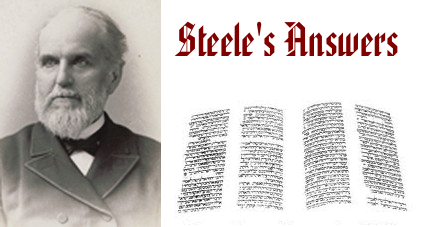"10 And whatsoever man there be of the house of Israel, or of the strangers that sojourn among you, that eateth any manner of blood; I will even set my face against that soul that eateth blood, and will cut him off from among his people. 11 For the life of the flesh is in the blood: and I have given it to you upon the altar to make an atonement for your souls: for it is the blood that maketh an atonement for the soul. 12 Therefore I said unto the children of Israel, No soul of you shall eat blood, neither shall any stranger that sojourneth among you eat blood. 13 And whatsoever man there be of the children of Israel, or of the strangers that sojourn among you, which hunteth and catcheth any beast or fowl that may be eaten; he shall even pour out the blood thereof, and cover it with dust. 14 For it is the life of all flesh; the blood of it is for the life thereof: therefore I said unto the children of Israel, Ye shall eat the blood of no manner of flesh: for the life of all flesh is the blood thereof: whosoever eateth it shall be cut off. 15 And every soul that eateth that which died of itself, or that which was torn with beasts, whether it be one of your own country, or a stranger, he shall both wash his clothes, and bathe himself in water, and be unclean until the even: then shall he be clean. 16 But if he wash them not, nor bathe his flesh; then he shall bear his iniquity." — Leviticus 17:10-16 KJV.

This form of words indicates that the extermination of the blood eater will not be by imperfect human judicatories, but by the direct intervention of Jehovah cutting off the offender, as if guilty of a most heinous crime. See Leviticus 7:26, note.
11. The life… in the blood — Literally, “the נֶ֣פֶשׁ
(nephesh, soul) of the flesh.” The soul has a double sphere of life. It is both
animus, the subject of all the activities of knowing, feeling, and willing, and
anima, the principle of animal life vitalizing the blood and operating in nutrition and respiration. In 1628 Dr. Harvey discovered the vitality of the blood, for the circulation of the blood results from a living principle inhering in it. This wonderful discovery of anatomical science had been standing as an open secret in the Mosaic writings three thousand years, overlooked by science in her pride and disbelief of revelation. This is more surprising when we read Solomon’s beautiful announcement of the same truth in Ecclesiastes 12:6. The Bible, when rightly understood, never contradicts science.
I have given it… for your souls — Jehovah has not only devised the scheme of an atonement, but he gives the blood which is demanded to perfect this scheme. He not only saves through sacrifice, but he affords the victim. “Behold the Lamb of God” — the Lamb which God requires, and which he accepts, himself provides. The atonement originates with the Father. John 3:16. He is not, as some blasphemously portray him, an inexorable Shylock demanding his pound of flesh. The blood which he demands he gives. How widely different the divine scheme from human attempts at propitiation, in which the god to be appeased is to be bought off by costly sacrifices. God provides his own means of propitiation, so that all boasting is excluded, for we are saved by grace through faith in the one God-given, atoning sacrifice. “The death of Christ,” says Delitzsch, “was a conscious act of loving free-will, the central act of his own self-sacrifice, the solution of the enigma, ‘I have given it,’ in which the saints of the Old Testament had to rest their implicit faith.”
Atonement for the soul — All the versions, except the Revised Version, have missed the great truth revealed in the Hebrew, “it is the blood that maketh atonement BY REASON OF THE LIFE.” ב is plainly an instrumental preposition, and not to be rendered ἀντί,
instead of, as the Seventy, nor
pro, for, as the Vulgate, nor
fur, as Luther. See extensive discussion in
The Ceremonial Function of the Blood. Men are redeemed from death only by the price of a life. Jesus gave his life a ransom for the world. Says Kalisch, “It is impossible to doubt that the doctrine of vicarious sacrifice was entertained by the Hebrews… The animal dies to symbolize the death deserved by the offerer on account of his sins.” The apparent discrepancy between this verse and Hebrews 10:4, 11, is removed when, with Outram, we regard the blood as a “condition of pardon,” and with Ebrard and Alford, “not the instrument of complete vicarious propitiation, but an exhibition of the postulate of such propitiation.” See concluding note.






.png)
